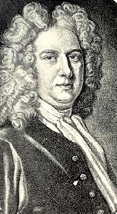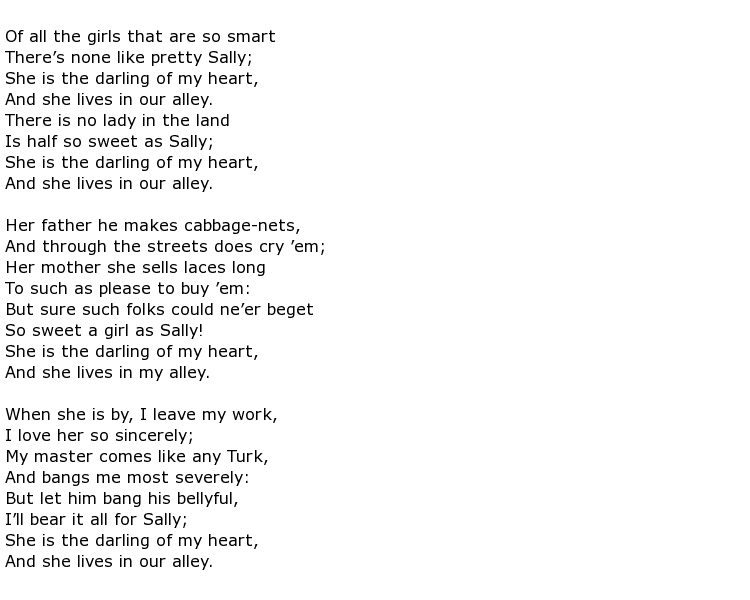 Henry Carey was an English writer, specialising in satirical pieces in poem or song form, often at the expense of political figures such as Prime Minister Sir Robert Walpole. He was also a singer and playwright. Oddly enough he often preferred anonymity, thus allowing others to benefit from his work and some of his musical compositions have even survived to this day. He did publish work using his own name though and he is regarded as one of the forerunners of what was, at that time, the new Patriotic movement in drama.
Henry Carey was an English writer, specialising in satirical pieces in poem or song form, often at the expense of political figures such as Prime Minister Sir Robert Walpole. He was also a singer and playwright. Oddly enough he often preferred anonymity, thus allowing others to benefit from his work and some of his musical compositions have even survived to this day. He did publish work using his own name though and he is regarded as one of the forerunners of what was, at that time, the new Patriotic movement in drama.
He was born in London towards the end of August 1687 and some accounts put him down as the illegitimate son of a statesman by the name of George Savile, also known as the 1st Marquess of Halifax. Although there are odd bits of evidence to suggest that this was true, Carey himself never made any claims on the Savile family. It is significant though that some historical reports suggest that he did receive a “generous annuity” from them, but this cannot be confirmed. What is certain though is that Carey worked as a jobbing writer so it is hard to believe that he had a private income.
He began his working life teaching music at a boarding school while making the time to write as well. While some of his early work was almost certainly written “to order”, to benefit others, he also became a regular contributor to London periodicals. A series of romantic fictional stories appeared in early 1710 called Records of Love, most certainly aimed at the discerning female readership. It is also believed that he was singing at a Drury Lane theatre at this time. By 1713 his first collection of poetry had been published under the title Poems on Several Occasions.
Carey was never afraid to offer his political views, either in song or in satirical written pieces, and he found himself in trouble during the year 1717 for commenting on the fall of the Tory government ministers who had been accused of treason. With some of them suffering imprisonment in the Tower of London, and then being released, Carey wrote a jaunty psalm which included the line:

He married Elizabeth Pearks and, that same year of 1722, he wrote the suggestively titled play Hanging and Marriage. More musical assignments followed and he soon became known as the “unofficial composer in residence” for the Drury Lane theatres. Of his many compositions one of the most enduringly famous is a poem called Sally in Our Alley and this was adapted into a 20th century song made famous by Lancashire singer Gracie Fields. The opening verses of the original piece by Carey are reproduced below:

He made some kind of a living out of poking fun at leading figures in London society with poems such as Namby Pamby, this one in particular aimed at poet and politician Ambrose Phillips who was the subject of much derision from Carey. The words in the title are still used today, to denote attitudes demonstrating “nonsensical frippery”. However, not all of his work trivialised people and English 18th century life. Although it cannot be confirmed with any certainty it is believed that he wrote the poem God Save the King, a piece set to music and sung by Carey at a Patriot Whig political meeting some time during the early 1740s. This is still the national anthem today, with a subtle change to the title of course.
History will record that much of Carey’s work fell into the trivial category but, of course, not all of it was so and he was a very popular writer and musical composer during his lifetime. It all ended in tragedy though when he lost his son Charles during the year 1743 and, possibly in a fit of depression, he hanged himself soon after.
Henry Carey died in London on the 5th October 1743 at the age of 56.

